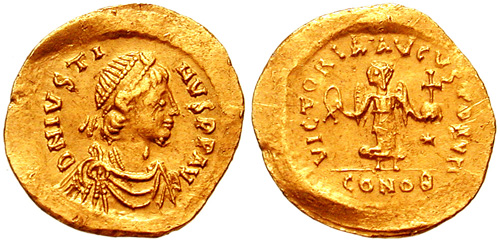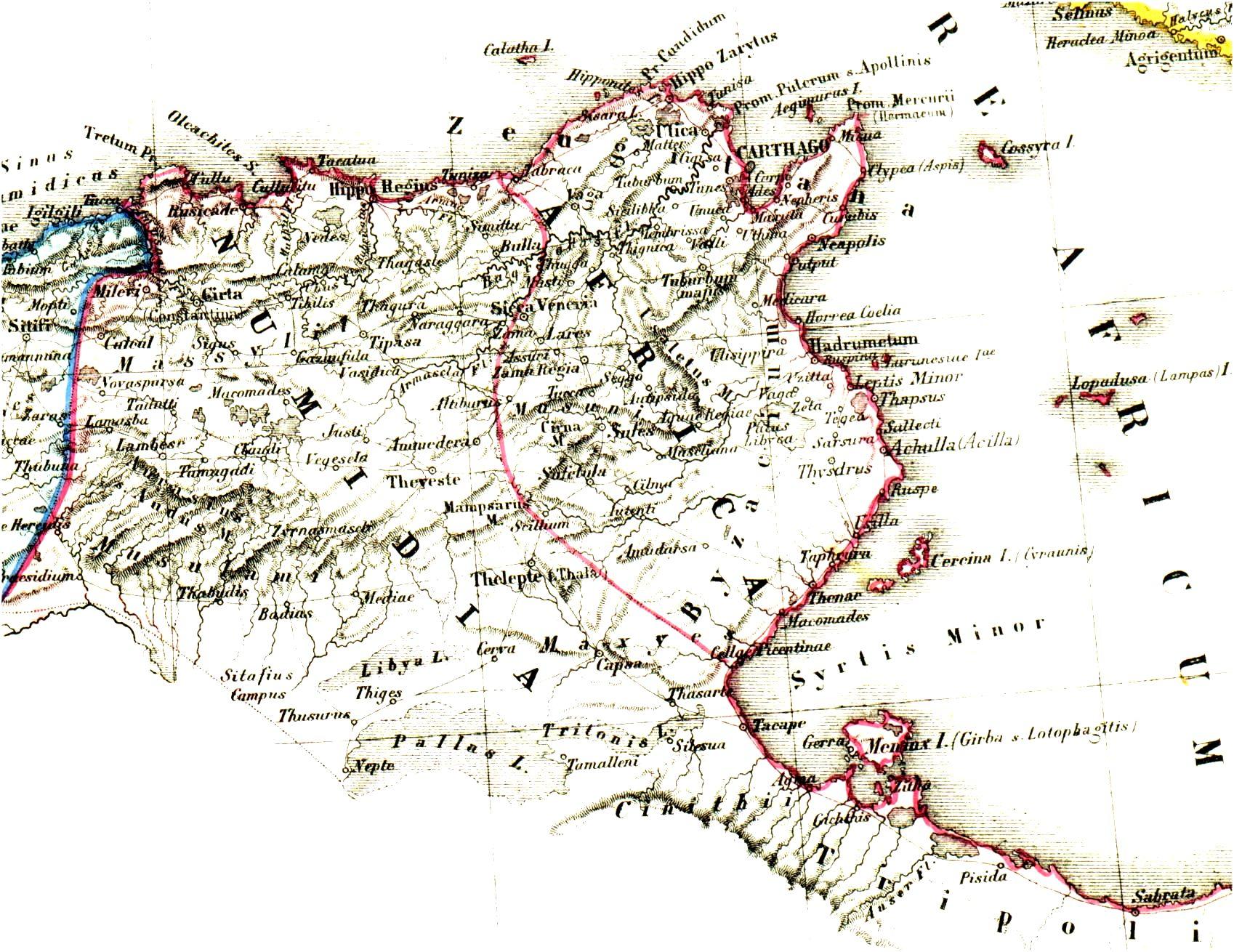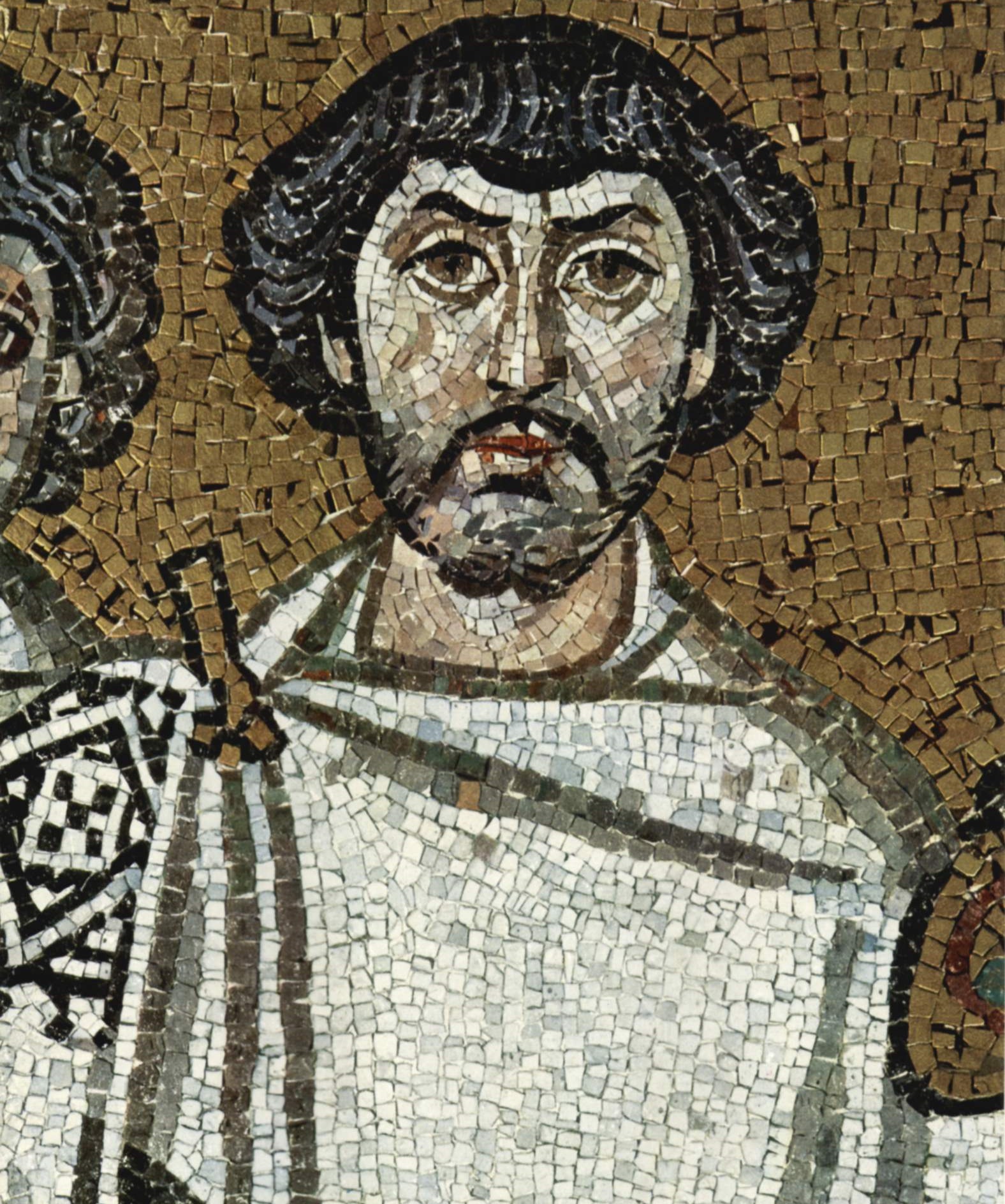|
Boraides
Boraides ( el, Βοραΐδης, d. 548) was a cousin of the Byzantine emperor Justinian I (r. 527–565), better known for his role in ending the Nika riots of 532. The primary source about him is Procopius.Martindale, Jones & Morris (1992), pp. 245–246 Life Boraides was a brother of Germanus (cousin of Justinian I), Germanus and Justus. They were reportedly cousins of Justinian I, though the exact relation is uncertain. They were nephews of Justin I (r. 518–527), though often erroneously stated to be nephews of Justinian himself.Martindale & Morris (1980), p. 505Kazhdan (1991), p. 846 On the last day of the Nika riots, Boraides and Justus were responsible for capturing Hypatius (consul 500), Hypatius, whom the populace had declared emperor, and his brother Pompeius (consul 501), Pompeius. Procopius reports: "Then indeed from both sides the partisans of Hypatius were assailed with might and main and destroyed. When the rout had become complete and there had already been great ... [...More Info...] [...Related Items...] OR: [Wikipedia] [Google] [Baidu] |
Germanus (cousin Of Justinian I)
Germanus ( el, Γερμανός; died 550) was an East Roman (Byzantine) general, one of the leading commanders of Emperor Justinian I (r. 527–565). Germanus was Emperor Justinian's cousin, and a member of the ruling dynasty. He held commands in Thrace, North Africa, and the East against Persia, and was slated to command the final Byzantine expedition against the Ostrogoths. Having married into the Gothic Amal royal line through his second wife Matasuntha and a distinguished service record, at the time of his sudden death, he was considered the probable heir to Emperor Justinian. Biography Origins and early career Germanus was born before 505, the nephew of Emperor Justin I (r. 518–527) and thus cousin of Emperor Justinian I (r. 527–565), and not his nephew, as is often erroneously stated... According to a statement in Jordanes's ''Getica'', Germanus was a descendant of the noble Roman clan of the Anicii. The exact nature of his connection, however, if indeed it is anything ... [...More Info...] [...Related Items...] OR: [Wikipedia] [Google] [Baidu] |
Justinian Dynasty
The Byzantine Empire had its first golden age under the Justinian dynasty, which began in 518 AD with the accession of Justin I. Under the Justinian dynasty, particularly the reign of Justinian I, the empire reached its greatest territorial extent since the fall of its Western counterpart, reincorporating North Africa, southern Illyria, southern Spain, and Italy into the empire. The Justinian dynasty ended in 602 with the deposition of Maurice and the ascension of his successor, Phocas. Justin I Early life and accession to the throne The Justinian dynasty began with the accession of its namesake Justin I to the throne. Justin I was born in a big village, Bederiana, in the 450s CE. Like many country youths, he went to Constantinople and enlisted in the army, where, due to his physical abilities, he became a part of the Excubitors, the palace guards. He fought in the Isaurian and Persian wars, and rose through the ranks to become the commander of the Excubitors, which was a ... [...More Info...] [...Related Items...] OR: [Wikipedia] [Google] [Baidu] |
Artabanes (general)
Artabanes ( el, , Armenian: ''Artawan'', from Parthian ''Artawân'', '' fl.'' 538–554) was an East Roman (Byzantine) general of Armenian origin who served under Justinian I (r. 527–565). Initially a rebel against Byzantine authority, he fled to the Sassanid Persians but soon returned to Byzantine allegiance. He served in Africa, where he won great fame by killing the rebel general Guntharic and restoring the province to imperial allegiance. He became engaged to Justinian's niece Praejecta, but did not marry her due to the opposition of the Empress Theodora. Recalled to Constantinople, he became involved in a failed conspiracy against Justinian in 548/549, but wasn't punished severely after its revelation. He was soon pardoned and sent to Italy to fight in the Gothic War, where he participated in the decisive Byzantine victory at Casilinum. Early life Artabanes was a descendant of the royal Armenian Arsacid line, a branch of which at the time was recognized as autonomous ... [...More Info...] [...Related Items...] OR: [Wikipedia] [Google] [Baidu] |
Pompeius (consul 501)
Pompeius (Greek: Πομπήιος, died 532) was a politician of the Eastern Roman Empire and nephew of the Emperor Anastasius I (reigned 491–518). His family gained political prominence with the accession of Anastasius. Pompeius was consul in 501, and was elevated to the patricianate, probably by Anastasius. He held military office, serving in the Iberian War. He married a woman named Anastasia, and had at least one son. In 532, Pompeius' brother Hypatius was acclaimed emperor by the rioters during the Nika riots; after the riots were put down, both Hypatius and Pompeius were executed. Family He was a son of Secundinus and Caesaria. His mother was a sister of Anastasius I. His father served as Eparch of Constantinople (c. 492) and Roman consul in 511. Secundinus also held the rank of patrician. The main sources for the career of Secundinus are John of Antioch and Theophanes the Confessor. The latter preserved fragments of Theodorus Lector which cover Secundinus. Joan ... [...More Info...] [...Related Items...] OR: [Wikipedia] [Google] [Baidu] |
Justin (consul 540)
Flavius Mar. Petrus Theodorus Valentinus Rusticius Boraides Germanus Iustinus, simply and commonly known as Justin ( la, Iustinus, el, ; ), was an East Roman (Byzantine) aristocrat and general. A member of the Justinian Dynasty and nephew of Emperor Justinian I (), he was appointed as one of the last Roman consuls in 540, before going on to assume senior military commands in the Balkans and in Lazica. He fought against the Slavs, the Sassanid Persians and supervised the Byzantine Empire's first contacts with the Avars. At the time of Justinian's death, he was seen as a probable successor, but was beaten to the throne by his cousin, Justin II (), who exiled him to Egypt, where he was murdered. Biography Early life and campaigns Justin was born around 525, the eldest son of Germanus and his wife Passara. Germanus was a cousin of the Byzantine emperor Justinian I () and thus a member of the wider Justinian dynasty and cousin to Justinian's successor, Emperor Justin II ().. In 5 ... [...More Info...] [...Related Items...] OR: [Wikipedia] [Google] [Baidu] |
Justin I
Justin I ( la, Iustinus; grc-gre, Ἰουστῖνος, ''Ioustînos''; 450 – 1 August 527) was the Eastern Roman emperor from 518 to 527. Born to a peasant family, he rose through the ranks of the army to become commander of the imperial guard, and when Emperor Anastasius died he out-maneouvered his rivals and was elected as his successor, in spite of being almost 70 years old. His reign is significant for the founding of the Byzantine Empire under the Justinian dynasty, Justinian dynasty that included his eminent nephew Justinian I and three succeeding emperors. His Queen consort, consort was Empress Euphemia (empress), Euphemia. He was noted for his strongly orthodox Christian views. This facilitated the ending of the Acacian schism between the churches of Rome and Constantinople, resulting in good relations between Justin and the papacy. Throughout his reign he stressed the religious nature of his office and passed edicts against various Christian groups seen at the tim ... [...More Info...] [...Related Items...] OR: [Wikipedia] [Google] [Baidu] |
Hypatius (consul 500)
Flavius Hypatius ( el, ; died 532) was a Eastern Roman noble of Imperial descent who held the position of commander in the East during the reign of Justin I, and was chosen by the mob as emperor during the Nika riots in Constantinople against Justinian I and executed shortly thereafter. Life Hypatius was the nephew of Emperor Anastasius I, who ruled before Justin, and he was also associated by marriage to the noble Anicii clan, which gave him a serious claim to the imperial diadem; however, Hypatius showed no such ambition, and he and the other nephews of Anastasius were well-treated by both Justin and his successor to the Byzantine throne, Justinian I. In the height of the Nika riots, Hypatius, along with his brother Pompeius and Probus (another nephew of Anastasius), were among the prime candidates for the imperial throne. As it became clear that the mob wanted a new emperor, Probus fled the city and Hypatius and Pompeius took shelter in the Imperial Palace, along with Ju ... [...More Info...] [...Related Items...] OR: [Wikipedia] [Google] [Baidu] |
Procopius
Procopius of Caesarea ( grc-gre, Προκόπιος ὁ Καισαρεύς ''Prokópios ho Kaisareús''; la, Procopius Caesariensis; – after 565) was a prominent late antique Greek scholar from Caesarea Maritima. Accompanying the Roman general Belisarius in Emperor Justinian's wars, Procopius became the principal Roman historian of the 6th century, writing the ''History of the Wars'', the ''Buildings'', and the ''Secret History''. Life Apart from his own writings the main source for Procopius's life was an entry in the ''Suda'',Suda pi.2479. See under 'Procopius' oSuda On Line a Byzantine Greek encyclopaedia written sometime after 975 which discusses his early life. He was a native of Caesarea in the province of ''Palaestina Prima''. He would have received a conventional upper class education in the Greek classics and rhetoric, perhaps at the famous school at Gaza. He may have attended law school, possibly at Berytus (present-day Beirut) or Constantinople (now Istanbul), a ... [...More Info...] [...Related Items...] OR: [Wikipedia] [Google] [Baidu] |
Justus (cousin Of Justinian)
Justus (died on 10 November between 627 and 631) was the fourth Archbishop of Canterbury. He was sent from Italy to England by Pope Gregory the Great, on a mission to Christianize the Anglo-Saxons from their native paganism, probably arriving with the second group of missionaries despatched in 601. Justus became the first Bishop of Rochester in 604, and attended a church council in Paris in 614. Following the death of King Æthelberht of Kent in 616, Justus was forced to flee to Gaul, but was reinstated in his diocese the following year. In 624 Justus became Archbishop of Canterbury, overseeing the despatch of missionaries to Northumbria. After his death he was revered as a saint, and had a shrine in St Augustine's Abbey, Canterbury. Arrival in Britain Justus was a member of the Gregorian mission sent to England by Pope Gregory I. Almost everything known about Justus and his career is derived from the early 8th-century ''Historia ecclesiastica gentis Anglorum'' o ... [...More Info...] [...Related Items...] OR: [Wikipedia] [Google] [Baidu] |
Justinian I
Justinian I (; la, Iustinianus, ; grc-gre, Ἰουστινιανός ; 48214 November 565), also known as Justinian the Great, was the Byzantine emperor from 527 to 565. His reign is marked by the ambitious but only partly realized ''renovatio imperii'', or "restoration of the Empire". This ambition was expressed by the partial recovery of the territories of the defunct Western Roman Empire. His general, Belisarius, swiftly conquered the Vandal Kingdom in North Africa. Subsequently, Belisarius, Narses, and other generals conquered the Ostrogothic kingdom, restoring Dalmatia, Sicily, Italy, and Rome to the empire after more than half a century of rule by the Ostrogoths. The praetorian prefect Liberius reclaimed the south of the Iberian peninsula, establishing the province of Spania. These campaigns re-established Roman control over the western Mediterranean, increasing the Empire's annual revenue by over a million ''solidi''. During his reign, Justinian also subdued the ''Tz ... [...More Info...] [...Related Items...] OR: [Wikipedia] [Google] [Baidu] |
Justinian (magister Militum Per Orientem)
Justinian ( la, Iustinianus, gr, Ἰουστινιανός, after 525–582) was an East Roman (Byzantine) aristocrat and general, and a member of the ruling Justinian dynasty. As a soldier, he had a distinguished career in the Balkans and in the East against Sassanid Persia. In his later years, he plotted unsuccessfully against regent and later emperor Tiberius II (r. 574–582). Biography Origins and early career Justinian was born in Constantinople sometime shortly after 525, the second son of Germanus, a cousin to the Emperor Justinian I (r. 527–565). He had an elder brother, Justin, and a sister, Justina, who married the general John... Justinian was first appointed to military command in 550, when he, together with his brother Justin, were to accompany their father in his expedition against Ostrogoth Italy. Germanus, however, died suddenly in autumn 550, before the army had left the Balkans, where it was assembling.. After this, Justinian and John (Germanus's son-in-l ... [...More Info...] [...Related Items...] OR: [Wikipedia] [Google] [Baidu] |
Nika Riots
The Nika riots ( el, Στάσις τοῦ Νίκα, translit=Stásis toû Níka), Nika revolt or Nika sedition took place against Byzantine Emperor Justinian I in Constantinople over the course of a week in 532 AD. They are often regarded as the most violent riots in the city's history, with nearly half of Constantinople being burned or destroyed and tens of thousands of people killed. Background The ancient Roman Empire, Roman and Byzantine Empire, Byzantine empires had well-developed associations, known as ''Deme#Later usage, demes'', which supported the different factions (or teams) to which competitors in certain sporting events belonged, especially in chariot racing. There were initially four major factions in chariot racing, differentiated by the colour of the uniform in which they competed; the colours were also Byzantine dress, worn by their supporters. These were the Blues (''Veneti''), the Greens (''Prasini''), the Reds (''Russati''), and the Whites (''Albati''), althou ... [...More Info...] [...Related Items...] OR: [Wikipedia] [Google] [Baidu] |







